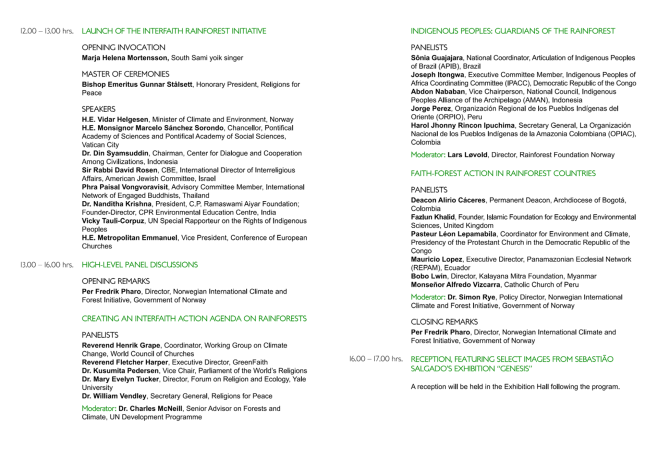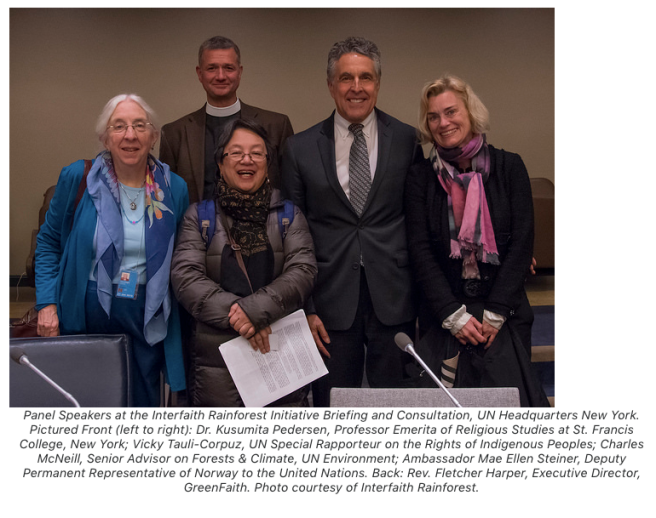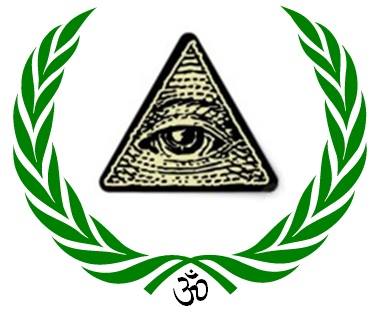

On June 21, 2017, Christian, Muslim, Jewish, Hindu, Buddhist, and Daoist leaders joined indigenous forest guardians in a global coalition to protect rainforests.
The group was convened by Norway’s International Climate and Forest Initiative (NICFI), Rainforest Foundation Norway (RFN), and the United Nations Development Programme (UNDP), in cooperation with the Forum on Religion and Ecology at Yale University, GreenFaith, the Parliament of the World’s Religions, Religions for Peace, REIL Network, and the World Council of Churches.
Citing the spiritual, environmental, social and economic benefits provided by the world’s tropical rainforests, the partners of the multi-faith initiative emphasize humanity’s shared ethical and moral responsibility to protect them. They are committed to concrete, collective action to protect, restore, and sustainably manage those forests.
Indigenous Peoples will play a leadership role in the initiative, as their traditional wisdom evolved in intimate interaction with rainforests. A growing body of scientific evidence shows Indigenous Peoples to be the best guardians of the forests, and confirms that granting strong land rights to Indigenous Peoples and forest communities serves as an effective, inexpensive solution to the deforestation crisis, while delivering social, economic, and climate benefits.
Although the traditional knowledge of Indigenous Peoples is recognized in the Paris Agreement as a potent tool against climate change, these traditional forest peoples are under siege from governments, multinational companies, and other encroachers eager to chop down forests for infrastructure, palm oil plantations, soy, and cattle.
Launch Announcement – Participant Statement – Press Materials – Summary Report

UPDATE: The IRI global steering committee reconvened at the UN Headquarters in New York on April 19, 2018 to give a briefing on this initiative and to receive consultation.
Leaders and representative of NGOs and advocacy groups (such as the Water Culture Institute and Rainforest Alliance) were eager to learn how they, as secular organizations, could help. The steering committee members were clear that atheists, humanists, and any person of ethical convictions had a place in dialogue and coalition building.
IRI will launch early programs in five high risk, high priority countries: Brazil, Colombia, Peru, the Democratic Republic of Congo, and Indonesia. These programs will support the development of faith-based networks with diverse advisory councils which include local indigenous people.
